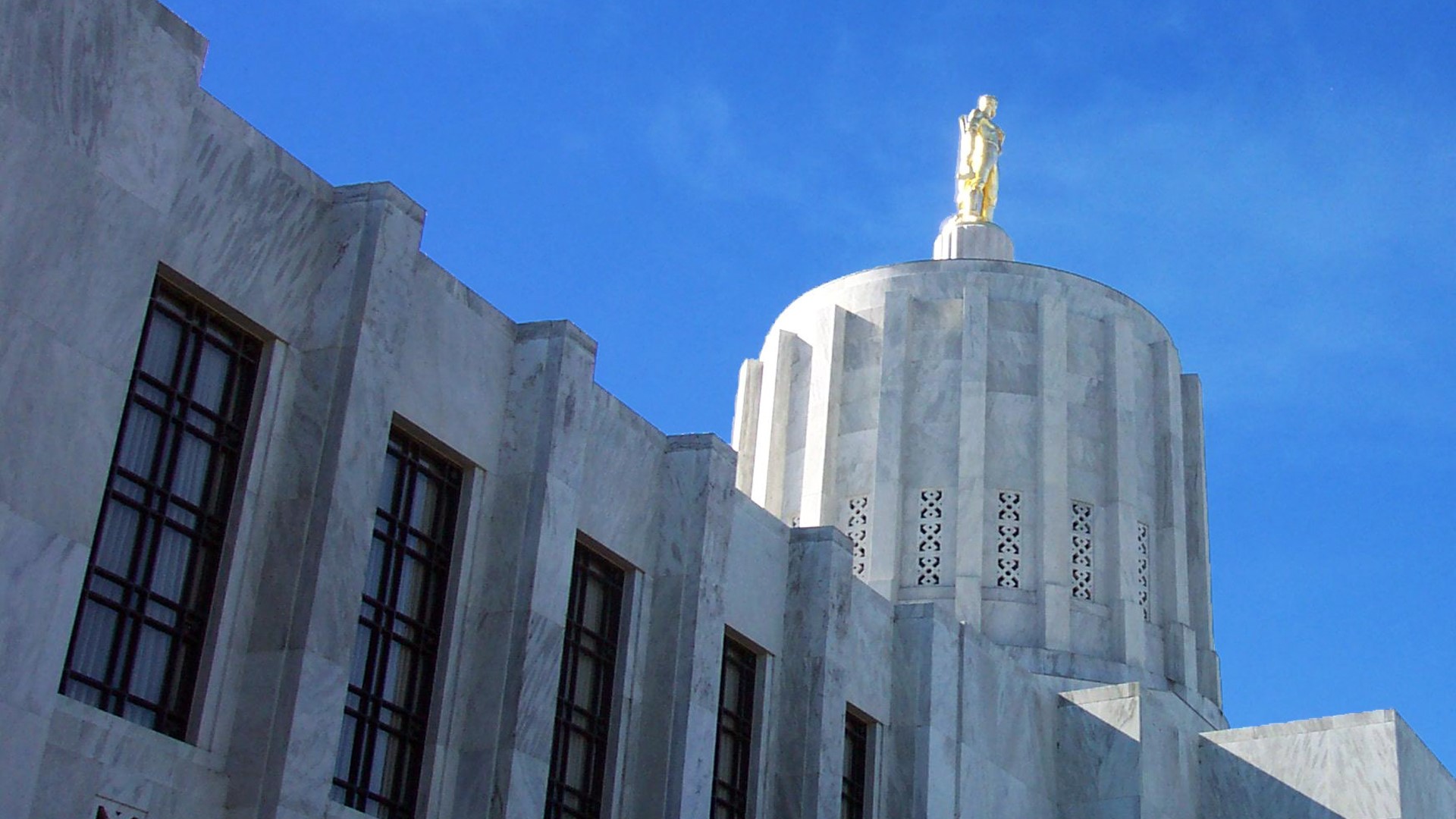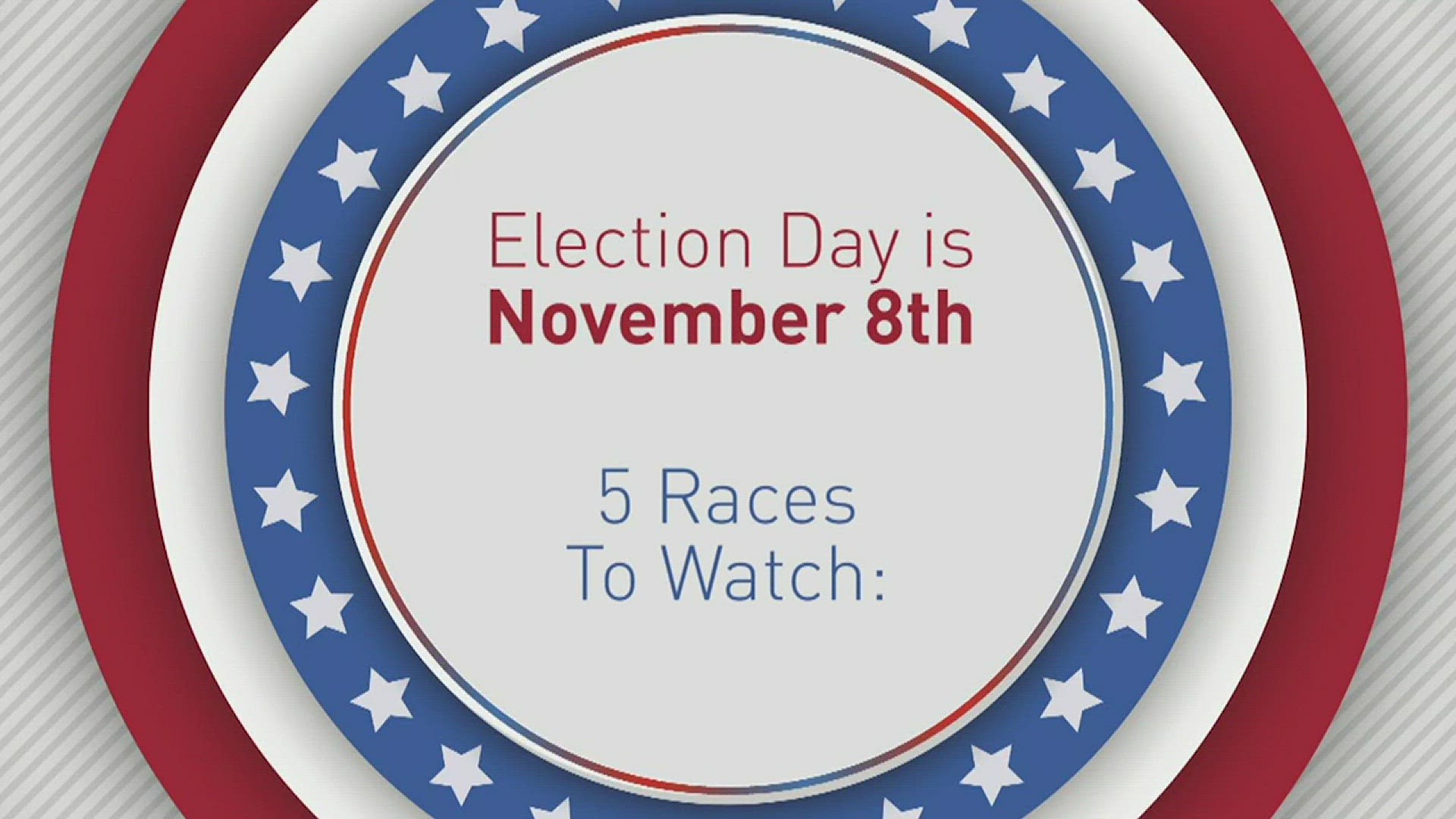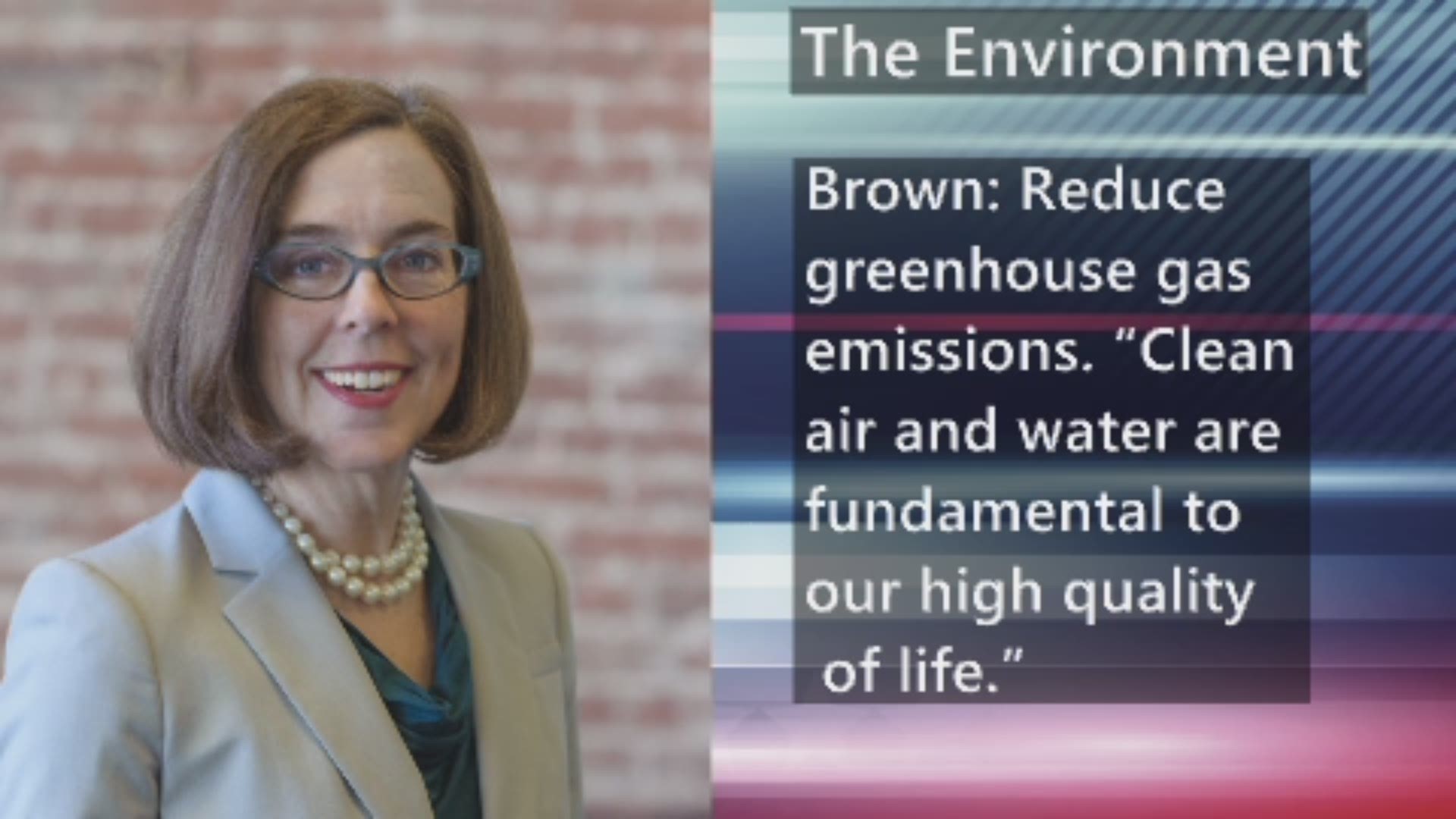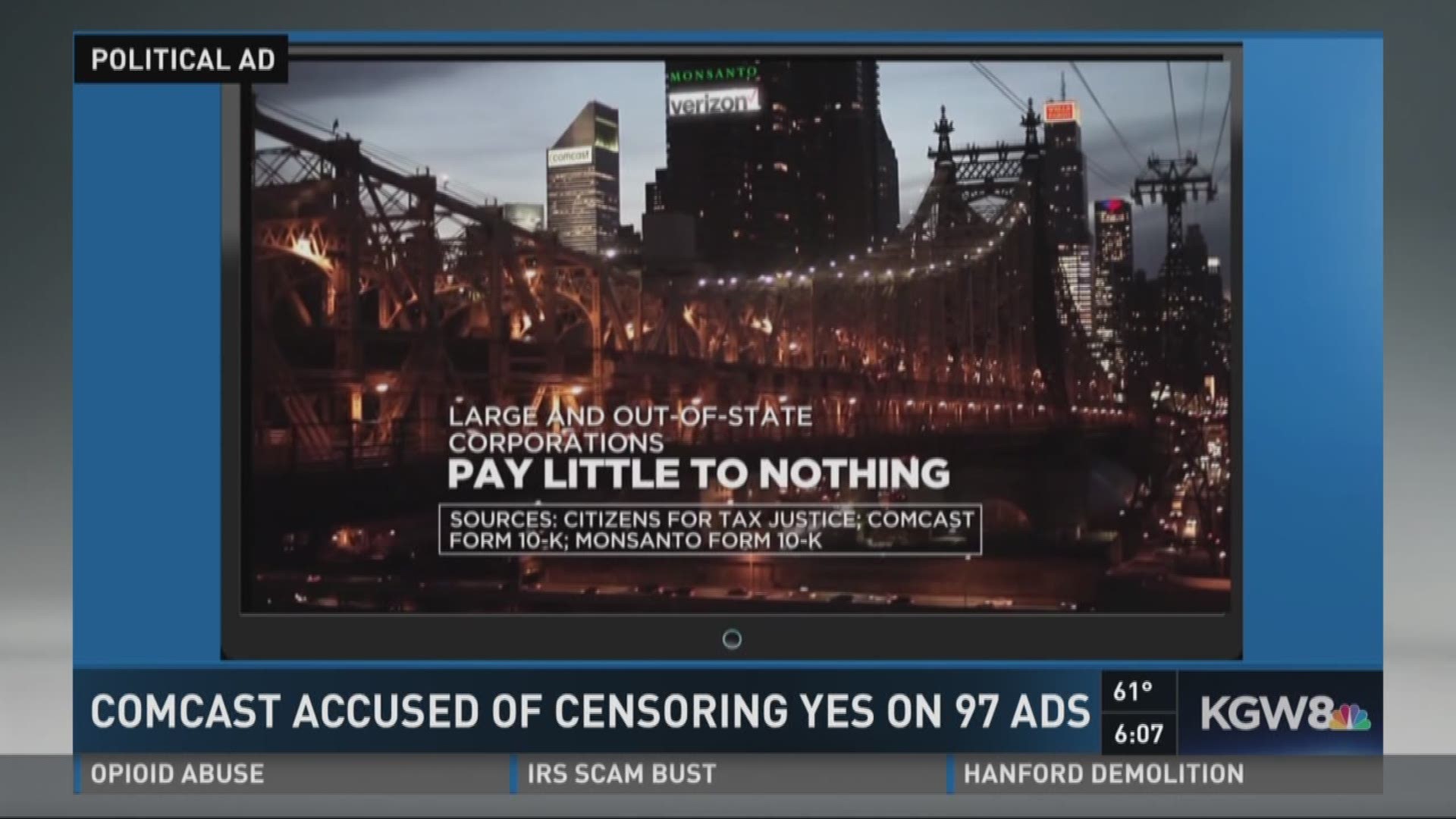Your guide to the November election
<p>Where the candidates stand, what the measures really mean and key facts you need to know before you vote in Oregon.</p>
KGW

The presidential race may be dominating election headlines, but Oregon voters will decide on significant state races during the November election. The governor, secretary of state, state treasurer, two Multnomah County commissioners and a Portland city councilor will all be elected.
Voters could also pass big-ticket items including a multi-billion-dollar tax on corporations and a $258 million housing bond.
Here’s what you need to know before you vote.
Jump to sections:
Democrat Kate Brown took over as governor following John Kitzhaber’s resignation in early 2015. Now, Brown faces challenger Dr. Bud Pierce in the contest to finish what would have been the last two years of Kitzhaber’s term, from Jan. 1, 2017 – Jan. 1, 2019.
Brown brings decades of political experience, while Pierce – a doctor, like Kitzhaber was before taking office – offers an outsider’s perspective. The candidates agree on some topics, including equal pay, investing in education and adding affordable housing, but they differ on other key issues.
Which candidate do you align with the most? Take our quiz.
Note: KGW and The Oregonian are hosting the final gubernatorial debate between Gov. Brown and Dr. Pierce at 7 p.m. Thursday, Oct. 20. Watch live on KGW, KGW.com and on KGW’s Facebook page, where a live fact-check will take place.
One of the most heated and well-funded fights is over Measure 97, which proposes to tax gross sales on companies that make more than $25 million a year. Proponents say it’s time for big corporations to pay their fair share, while opponents say the tax on gross sales could wipe out profits for some Oregon companies that operate within tight margins. Both sides say the other is skewing the truth. Comcast, which would be impacted by the measure, was even accused of censoring “Yes on 97” ads.
KGW news partner the Portland Business Journal looked into key questions about the measure and here’s what they found:
Q: Is Measure 97 fair?
A: Because the tax applies to C-corporations exclusively, S-corporations, Limited Liability Companies and benefit companies, among others, would be exempt. The imbalance would put C-corps at a disadvantage to competitors inside and outside of Oregon whose corporate structure is different.
Q: Will Oregonians pay more?
A: While the non-partisan Oregon Legislative Revenue Office doesn’t definitively say prices for goods and services will increase, it did calculate that the per-capita tax burden for Oregonians would increase by roughly $600 annually.
Q: What happens if it passes?
A: It would become effective in 2017 and raise $6.1 billion in the 2017-19 two-year state budget, according to a Legislative Revenue Office estimate.
Q: What happens if it fails?
A: Gov. Brown said failure would mean agency budget cuts of between 10 percent and 12 percent. Efforts to increase taxes won’t go away and could come up again as early as the 2017 legislative session.
More from the Portland Business Journal:
Portland’s housing crisis, deteriorating infrastructure and the looming threat of an earthquake are just some of the issues facing the rapidly growing city. Either Chloe Eudaly or incumbent Steve Novick will take on the critical work of guiding Portland through the next four years. We asked for the top three things the Portland City Council candidates said they would do to tackle some of the city’s biggest problems.
Problem: The Housing Crisis
Solutions:
Novick:
1. Support the housing bond
2. Create more middle housing in neighborhoods where it makes sense
3. End no-cause eviction
Eudaly:
1. Rent stabilization
2. More funding for affordable housing
3. Financing mechanism for an affordable accessory dwelling unit (ADU) on every block
Problem: Portland needs more good-paying jobs
Solutions:
Novick:
1. Licensing reciprocity for immigrants with professional licenses in their home country
2. A permits system responsive to the needs of business
3. A functioning transportation system which is critical to a functioning economy
Eudaly:
1. Comprehensive cleanup for the Portland Harbor Superfund site
2. Community Benefits Agreements for all city contracts that would guarantee jobs and economic opportunity for those most in need
3. Financing for clean energy upgrades
The secretary of state works to maximize voter participation, examine public spending, promote state history and facilitate business. The secretary is also first in line for the governor's office.
Democrat Brad Avakian and Republican Dennis Richardson are polar opposite opponents in what could be one of the closest races in the state. Labor commissioner and self-proclaimed “activist” Avakian said he would expand the role of the secretary of state and be more of an advocate for issues and candidates than previous office holders. He pledged to overturn Citizens United, audit corporations and protect residents from fraud.
Richardson said he would take a more traditional role and cut government spending, welcome new businesses and preserve public records. He also wants to create more jobs on public land, something he pledged to do when he ran for governor against John Kitzhaber in 2014 and lost.
Here’s a rundown of the endorsements each candidate has received. Richardson notably received endorsements from the state’s major newspapers, while labor organizations and top Democrats have endorsed Avakian.
In November, Portland voters will decide whether to pay for a historic bond to create affordable housing. Supporters say the $258 million bond could make a significant difference in how many homeless people are on Portland’s streets.
Here’s what the bond will cost and what it promises to do.
View post on imgur.comRead more: Could Portland’s housing bond help solve homelessness?
The state treasurer manages a multitude of financial responsibilities for the state and has a profound impact on Oregon’s financial health. The office is also one of the highest in the state – it’s second in line for the governor’s office. Current treasurer Ted Wheeler is leaving to become Portland’s next mayor and three major-party candidates are vying for his seat.
Politics aside, each candidate has financial experience they say will help them in office. Here’s how the candidates stack up.
District 1: Eric Zimmerman vs. Sharon Meieran
District 2: Lori Stegmann vs. Amanda Schroeder
Two Multnomah County commissioner spots are up for election and none of the candidates are incumbents. Leaving are Jules Bailey, who gave up the right to run for reelection when he took on Ted Wheeler in the Portland mayor’s race, and Diane McKeel, who has served two terms and is not allowed to run again.
The two candidates in each district’s race have strong backgrounds and prominent endorsements.
Only one, Amanda Schroeder, has no prior government experience but she has the support of powerful state senator Diane Rosenbaum and the Portland Police Association.
(click here for a district map)
Compare the candidates:
Most of the national races playing out in Oregon are expected to go to incumbents. Senator Ron Wyden and representatives Suzanne Bonamici, Greg Walden, Earl Blumenauer and Peter Defazio will all likely retain their seats.
The closest Oregon race for the U.S. House is the 5th District race between Democratic incumbent Kurt Schrader and Republican challenger Colm Willis, although Schrader's massive fundraising advantage should help him stay in office.
Read more: Schrader takes on Willis in 5th District
You've probably already decided who you're backing for the next president of the United States, so check out this cool interactive created by USA Today where you can guess how the election could play out state-by-state.
The last day to register to vote in Oregon was October 18. Mail in your ballot by Wednesday, Nov. 2 or drop it off at a nearby ballot box. Find your closest ballot box here.



